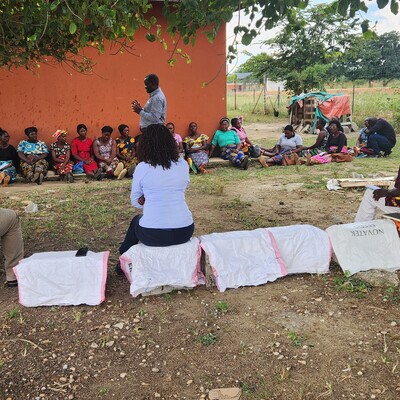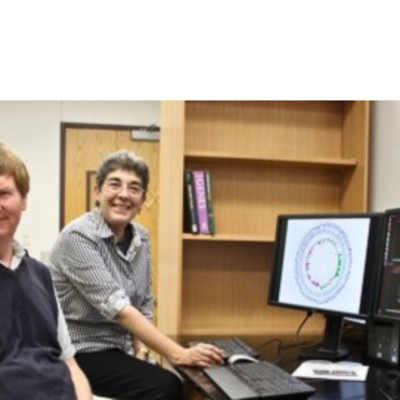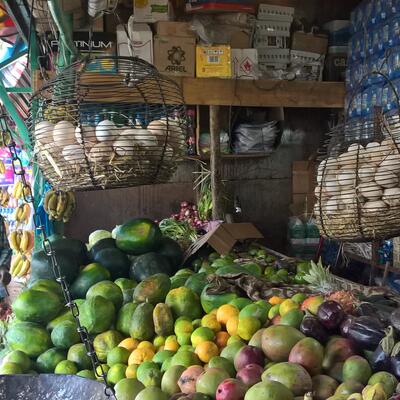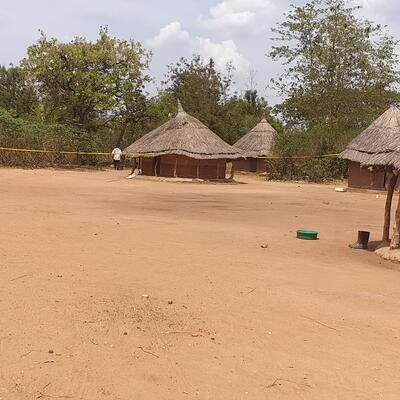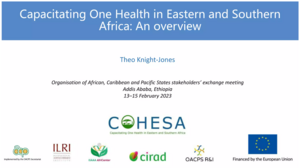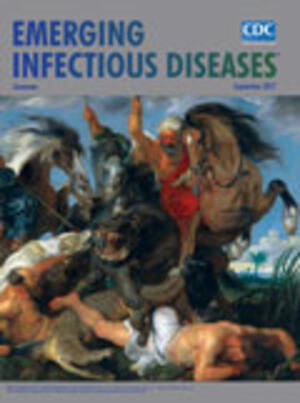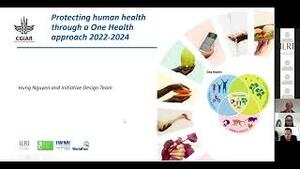
Training researchers virtually when supplies can cross borders but people cannot
Written by Zoë Campbell
 Contents of the peste des petits ruminants virus antigen rapid test kit [ID Rapid® PPR Antigen, IDVet, France] (photo credit: ILRI/Bryony Anne Jones).
Contents of the peste des petits ruminants virus antigen rapid test kit [ID Rapid® PPR Antigen, IDVet, France] (photo credit: ILRI/Bryony Anne Jones).
In the midst of the global COVID-19 pandemic, supplies can cross international borders, but the same is not always true for people. The Epidemiology and Control of peste des petits ruminants (ECo-PPR) project team recently ordered diagnostic test kits that will be used across all six study countries in East and West Africa. The tests are used to detect whether a sheep or goat is infected with peste des petits ruminants (PPR), a contagious viral disease. In addition to ordering supplies, beginning a new research project also requires training researchers.
In the past, we would organize in-person trainings for the project researchers. In an interdisciplinary study, not every country has an expert in epidemiology, economics and gender, for example, but we address this gap by training and learning from each other. Veterinary activities are considered essential services in many countries which allows research to be done domestically, but international movement would be difficult for the trainers due to COVID-19 related travel restrictions. Instead of the usual in-person training, we moved online.
With over 10 research tools including a household survey, market survey and outbreak investigation to introduce, we decided to create something that resembles online school. The trainers designed a 5-10-minute video for each tool with built in activities and resources and posted them on YouTube. We used the videos to support the first training with 15 West African veterinarians, socio-economists and lab technicians which ran 31 August – 7 September 2020. We asked training participants to do ‘homework’ by watching the videos and doing the related activities before a daily virtual session. This allowed participants to go over the presentations as often as needed. The virtual sessions of one and a half to two hours per day were used for troubleshooting, discussing issues particular to individual countries and answering questions. To monitor progress and to stimulate discussion, the trainers also used online polls during the virtual sessions. Participants appreciated the flexibility of the coordinating team but found the long pauses waiting for everyone to complete online poll questions tedious. The trainers worried people did not have enough time to complete some activities outside of the session.
For the training in East Africa, which ran 5–9 October 2020, the trainers adopted a hybrid approach to address the challenges experienced in West Africa. Participants gathered for in-person localized meetings for one week to train in a centralized place away from their duty station that had good internet and few distractions. They came together each day for a virtual meeting that included participants from Ethiopia, Kenya, Tanzania and Uganda. This approach seemed to work well because it allowed for in-person interactions within each country and virtual interactions with the trainers and fellow researchers in neighbouring countries. One participant shared liking ‘that it was quite interactive despite the fact that we could not all be together.’ Multiple participants noted the limited time to cover all the research tools in detail in only one week.
We have yet to see how training virtually will affect the research project in the long run, but in the short run, we will continue to experiment with new ways of communicating. Virtual trainings are not perfect, but until we can again move as freely as mailed packages, this is our new normal.
The training materials for the ECo-PPR project, including videos, can be found on the ECo-PPR YouTube channel and on CGSpace.







